The Talk Began with Armin at One Voice
Yesterday I spent much of the day online in my den enjoying different workshops from the One Voice 2020 conference. I had not planned to fly to London to attend before the pandemic, but since virtual attendance became an option I was excited to participate. I got so much out of the sessions, from thinking about craft and marketing, to thinking about my feelings about auditions and the work that I book. So, from the start, thanks to Hugh Edwards and the entire team at Gravy for the Brain for this amazing conference!
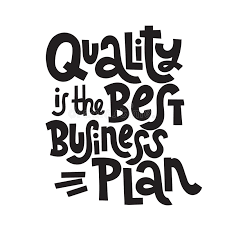 Each session got my wheels turning for different reasons, but during Armin’s session that was around 11 AM EST, when he spoke of defining quality in the industry. My head was bursting with ideas. If you don’t know Armin Hierstetter, he is the founder and CEO of the online casting platform Bodalgo. Unlike some platforms where you can simply sign up, Bodalgo stands apart because Armin has a screening process to begin with, setting a bar for “quality” from the start. In his talk, Armin spent a bit of time talking about what is going on industry wide in terms of quality, what quality looks like, and how quality could be achieved.
Each session got my wheels turning for different reasons, but during Armin’s session that was around 11 AM EST, when he spoke of defining quality in the industry. My head was bursting with ideas. If you don’t know Armin Hierstetter, he is the founder and CEO of the online casting platform Bodalgo. Unlike some platforms where you can simply sign up, Bodalgo stands apart because Armin has a screening process to begin with, setting a bar for “quality” from the start. In his talk, Armin spent a bit of time talking about what is going on industry wide in terms of quality, what quality looks like, and how quality could be achieved.
Why does Armin’s chat matter so much? Well, if you recall last week I blogged about Casting Director MaryLynn Wissner and what happens if we take Coaching out of the mix when defining a professional. Yesterday, Armin made a strong argument for why coaching and training matter when defining quality in voiceover. Armin was not alone when he spoke about the importance of coaching, I heard this message from Kay Bess as well. I think any well-established talent in the industry will tell you with pride how much they have invested in working on their craft. Next, Armin also spoke about the importance of audio quality. Again, in order to book work competitively at the moment in the industry, a professional talent must have the “right” equipment in a sound treated space and know how to edit it. But simply having training and buying equipment alone is not enough, these need to combine with an ethical underpinning on platforms that are out to foster the growth of the industry, and all of that together creates a synergy to provide quality work for out clients.
So, inspired by Armin, let’s examine more in depth how we can work together at this unique moment in history to provide outstanding VO quality for our clients:
Training:
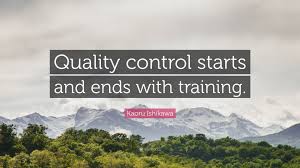 It is imperative that in order to be competitive in the voice over industry today a talent must have coaches and continue to work on their craft. When I started I did a combination of one on one coaching in specific genres, online classes, acting and improv. Whether or not you are working towards a demo, a good coach will help you develop your strengths and identify your weaknesses. They will also help you identify next steps and encourage you with other genres of voice over that would likely be a good fit. As MaryLynn mentioned in her blog post, good coaches ideally have a responsibility to give talents both a push in the right direction and a heads up if they are sub parr.
It is imperative that in order to be competitive in the voice over industry today a talent must have coaches and continue to work on their craft. When I started I did a combination of one on one coaching in specific genres, online classes, acting and improv. Whether or not you are working towards a demo, a good coach will help you develop your strengths and identify your weaknesses. They will also help you identify next steps and encourage you with other genres of voice over that would likely be a good fit. As MaryLynn mentioned in her blog post, good coaches ideally have a responsibility to give talents both a push in the right direction and a heads up if they are sub parr.
Attending conferences is essential to understanding industry trends. What is current and booking changes. If you are not in touch with other voice actors and involved in current training, how do you know what is booking at the moment? There are also differences by region. For example, I was told at WoVo Con 2019, this year, that when submitting west coast auditions I should add touches of improv but never to do that on auditions being submitted in NYC. Working out and doing line reads in the presence of other voice actors, while humbling, also helps you see where you fit in in the community and if you are in fact up to snuff. It is really important to push yourself to these challenges and participate in such community activities.
Audio Quality:
Audio quality matters. Clients can hear the difference when listening to auditions. I have always been a big proponent of getting WoVo studio approval and when I cast jobs for clients will only cast with talents who have been vetted through this process.
For those wanting to learn as much as possible about studio setups and audio standards, there are lots of great ways to go about it. The VOBS weekly show is really helpful. If you started watching today, you would be busy for a while! Both Dan Leonard and George Whittam are also available to help teach anything related to audio processing and studio set up, as is Tim Tippets, and Roy Yokelson. There are others out there too, but if you want to have competitive audio, the quality of your raw audio needs to be outstanding and then you need to know how to edit it. It’s that simple. Those of use who have been in the business for a while typically attend workshops at conferences on DAW upgrades. For example, I love learning more about Twisted Wav. We also typically make improvements to our travel rigs. If your audio is not pristine, all the coaching in the world won’t save you.
Conclusions
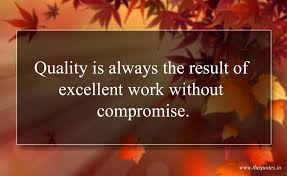 If you want to succeed in voiceover, there are not short cuts to creating quality work. There is an industry standard and the bar is high. That is what books. If you are aware of those of us who continue to book at this time, the answer to what sets them apart is one word: quality.
If you want to succeed in voiceover, there are not short cuts to creating quality work. There is an industry standard and the bar is high. That is what books. If you are aware of those of us who continue to book at this time, the answer to what sets them apart is one word: quality.
 What I explained to Liz, and what is interesting, is that during the Pandemic I continue to book what I have always booked, there is just less of it. So what am I still booking? Commercials, eLearning, and telephony/IVR. For me, the amount of jobs I typically have in a day or even half a day on some weeks I am having total in a week. I am thankful for every single booking, but the volume of booked work for me during the pandemic has gone down. Typically, I do a lot of radio commercials. The commercials I have booked this month have been radio commercials. They have been from steady clients who continue to send work. Some are for clients here and some have been for clients abroad, as far as New Zealand.
What I explained to Liz, and what is interesting, is that during the Pandemic I continue to book what I have always booked, there is just less of it. So what am I still booking? Commercials, eLearning, and telephony/IVR. For me, the amount of jobs I typically have in a day or even half a day on some weeks I am having total in a week. I am thankful for every single booking, but the volume of booked work for me during the pandemic has gone down. Typically, I do a lot of radio commercials. The commercials I have booked this month have been radio commercials. They have been from steady clients who continue to send work. Some are for clients here and some have been for clients abroad, as far as New Zealand.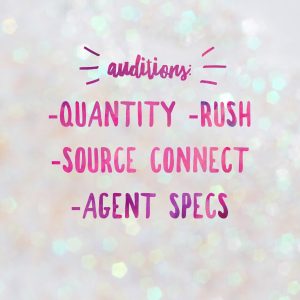



 Even though I work full time, as a mom of teenage twins, I am in the car A LOT. My SUV has a great sound system, and I confess I enjoy belting it out. The other night I had a realization though: unless my four year old niece is in the car, I am typically belting it out alone. And it is not that I am not playing great music, because I can assure you that it is always a party when I drive. I think it has more to do with the personalities of my husband and kids.
Even though I work full time, as a mom of teenage twins, I am in the car A LOT. My SUV has a great sound system, and I confess I enjoy belting it out. The other night I had a realization though: unless my four year old niece is in the car, I am typically belting it out alone. And it is not that I am not playing great music, because I can assure you that it is always a party when I drive. I think it has more to do with the personalities of my husband and kids. Snoop Dogg. Gladys Knight. Jonas Brothers. It doesn’t matter, I’m into it! So what on earth does this have to do with voiceovers? Well, people often ask me how I got into voice over or how I started booking work. It’s a tricky question. There are a lot of talented people who do what I do. There are also a lot of people who have had access to the training that I have had. They may even have the demos that I have. So, what sets us apart? Our schtick. Our unique personality and spark. The ability to put my dignity, airs, “whatever” in the metaphorical back seat and whoop it up for the clients, is essentially what I have been practicing for years. One of my beloved coaches, Fred Frees, used to tell me if I was going to “make it” I had to be fearless in front of the microphone. This singing in the car is exactly the same thing. When you have the reckless abandon to belt it out in front of everyone, odds are you will also be fearless in front of the mic.
Snoop Dogg. Gladys Knight. Jonas Brothers. It doesn’t matter, I’m into it! So what on earth does this have to do with voiceovers? Well, people often ask me how I got into voice over or how I started booking work. It’s a tricky question. There are a lot of talented people who do what I do. There are also a lot of people who have had access to the training that I have had. They may even have the demos that I have. So, what sets us apart? Our schtick. Our unique personality and spark. The ability to put my dignity, airs, “whatever” in the metaphorical back seat and whoop it up for the clients, is essentially what I have been practicing for years. One of my beloved coaches, Fred Frees, used to tell me if I was going to “make it” I had to be fearless in front of the microphone. This singing in the car is exactly the same thing. When you have the reckless abandon to belt it out in front of everyone, odds are you will also be fearless in front of the mic.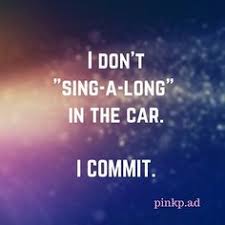 I did not go into voiceover because I wanted to sing. To the contrary, the jobs that involve that component are typically my hardest. The point of this is that the silly abandon that we have when playfully, often gleefully belting it out in the car whether we are alone or have an audience of 3, that is what we need to bring with us into the booth for every job. The ability to switch gears as quickly as a song changes on the radio is priceless. The ability to reinvent ourselves every two minutes is also priceless. All the professional training in the world cannot change the feeling that you have in your gut. I have been told by another coach that I “dive in” rather fast. I believe that, too, is one of my greatest assets! Whether it is a new station I am imaging for and each take on a line needs to be fresh, or a 15 second holiday spot, or an eLearning module, be the talent who is willing to shake things up and delight your client at every turn!
I did not go into voiceover because I wanted to sing. To the contrary, the jobs that involve that component are typically my hardest. The point of this is that the silly abandon that we have when playfully, often gleefully belting it out in the car whether we are alone or have an audience of 3, that is what we need to bring with us into the booth for every job. The ability to switch gears as quickly as a song changes on the radio is priceless. The ability to reinvent ourselves every two minutes is also priceless. All the professional training in the world cannot change the feeling that you have in your gut. I have been told by another coach that I “dive in” rather fast. I believe that, too, is one of my greatest assets! Whether it is a new station I am imaging for and each take on a line needs to be fresh, or a 15 second holiday spot, or an eLearning module, be the talent who is willing to shake things up and delight your client at every turn!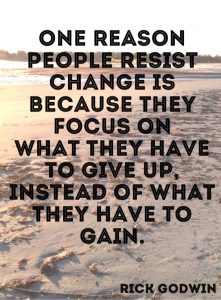
 As with so many other changes I have faced in life, the anticipation of the change is worse than the change itself! I am thankful every day for the guidance that I got from my cousin and from George that pushed me in the right direction. I am thankful that the fan on my computer is so quiet. I am thankful that there is an apple store at my mall so I could get started so easily. I also LOVE using Twisted Wave. For me, the shift from Audacity and Audition to Twisted Wave was a huge productivity improvement. It is both my hope and intention that through conferences I will continue my tech education and will stay current with all of the new tech trends in voiceover so that I can best serve my clients.
As with so many other changes I have faced in life, the anticipation of the change is worse than the change itself! I am thankful every day for the guidance that I got from my cousin and from George that pushed me in the right direction. I am thankful that the fan on my computer is so quiet. I am thankful that there is an apple store at my mall so I could get started so easily. I also LOVE using Twisted Wave. For me, the shift from Audacity and Audition to Twisted Wave was a huge productivity improvement. It is both my hope and intention that through conferences I will continue my tech education and will stay current with all of the new tech trends in voiceover so that I can best serve my clients.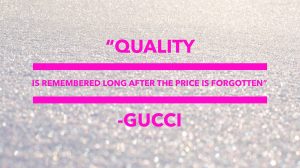 Sometimes you realize from the start of a project that you need to hire a professional voiceover actor. But other times, the voiceover is an after thought and much of the budget for a project is almost gone. Then the production team realizes that they need a voiceover talent. They scramble to find someone who is willing to work within their meager budget. They may have very advanced technology, spent a ton on instructional design or graphics, but now this very essential element is overlooked! Let me flesh out why it is better to go back to your client and re-budget for voiceover than to look for a cheap voiceover actor. You will never be happy if you hire a low budget talent!
Sometimes you realize from the start of a project that you need to hire a professional voiceover actor. But other times, the voiceover is an after thought and much of the budget for a project is almost gone. Then the production team realizes that they need a voiceover talent. They scramble to find someone who is willing to work within their meager budget. They may have very advanced technology, spent a ton on instructional design or graphics, but now this very essential element is overlooked! Let me flesh out why it is better to go back to your client and re-budget for voiceover than to look for a cheap voiceover actor. You will never be happy if you hire a low budget talent! Our demos are our calling cards. There are trends in demos to be sure. For example, right now our first spot is supposed to be short. We are trying to show a change in emotion. Regardless of genre, the demos show case a variety of reads. This is true across the board. In voiceover, different demo producers are sought after depending on the genre. They typically charge well over $1800 per demo. Again, in order to thrive in voiceover, we all have multiple demos. So, if we are willing to invest that much money in ourselves, we need to book jobs that will enable us to build a sustainable income. We are not looking for a race to the bottom.
Our demos are our calling cards. There are trends in demos to be sure. For example, right now our first spot is supposed to be short. We are trying to show a change in emotion. Regardless of genre, the demos show case a variety of reads. This is true across the board. In voiceover, different demo producers are sought after depending on the genre. They typically charge well over $1800 per demo. Again, in order to thrive in voiceover, we all have multiple demos. So, if we are willing to invest that much money in ourselves, we need to book jobs that will enable us to build a sustainable income. We are not looking for a race to the bottom.

